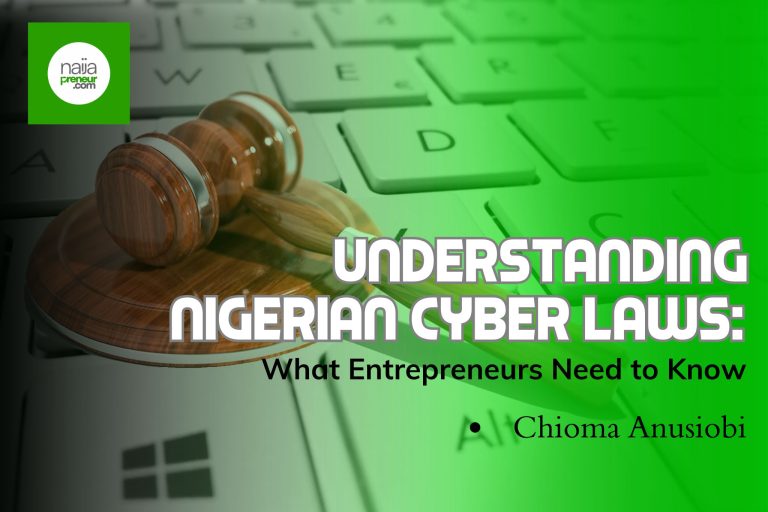It’s 2024 and Nigeria is experiencing a notable uptick in entrepreneurial activity, thanks largely to the growth of technology-focused incubators and accelerator programs across the country. As businesses increasingly rely on digital tools, store sensitive data, and interact with customers online, the legal landscape governing these actions can seem complex.
There are few essential cybersecurity and data protection laws every Nigerian entrepreneur should be aware of. Cyber laws are designed to create a safer online space. They establish standards for handling sensitive information and help protect individuals’ privacy.
For businesses, understanding and complying with these laws is not just about avoiding penalties; it’s also about building trust with customers. When businesses demonstrate their commitment to data protection, they foster long-term customer loyalty and enhance their brand reputation.
Understanding Nigerian Cyber Laws: What Entrepreneurs Need to Know
1. The Nigerian Data Protection Act (NDPA)
The NDPA, Nigeria’s flagship data protection law, is similar to international standards like the GDPR. It outlines how companies should handle customer data and protect privacy.
Key points include:
● Consent: Before collecting or processing personal data, you need clear permission from your customers.
● Transparency: Inform customers about how you’ll use their data and allow them to access, correct, or delete their information.
● Security Measures: Protect data through encryption, access controls, and regular security updates.
Failing to comply can lead to significant fines & jail time, which makes prioritizing data protection essential.
2. The Cybercrimes (Prohibition, Prevention, etc.) Act 2015
This act addresses various online crimes, including fraud, hacking, and identity theft. Here’s why it’s important for business owners:
● Cyber Fraud Protection: The law clearly outlines penalties for engaging in fraudulent practices or unintentionally enabling them.
● Employee Training: It’s crucial to educate your employees about responsible online behavior, data security practices, and how to recognize potential cyber threats. This act not only provides protection but also emphasizes the importance of accountability in ensuring customer safety.
3. Intellectual Property Protection Online
For digital entrepreneurs, safeguarding intellectual property (IP) is vital. Nigeria has laws in place to protect your brands, inventions, and creative works from unauthorized use. This protection is especially crucial for tech startups, content creators, and online brands, as it helps you maintain control over your innovations and creative assets.
4. Electronic Transactions Bill
The Electronic Transactions Bill establishes a legal framework for conducting electronic transactions and e-commerce. It ensures that online contracts are valid and that businesses can confidently engage in digital commerce. This bill is particularly important as it helps build a reliable and legally sound environment for online business activities.
Steps for Staying Compliant and Protected
To ensure your business is compliant with Nigerian cyber laws, consider the following steps:
● Conduct Regular Data Audits: Regularly review how customer data is collected, stored, and shared to ensure compliance with data protection laws.
● Invest in Cybersecurity Measures: Implement basic cybersecurity tools like firewalls, antivirus software, and secure servers to help prevent data breaches.
● Educate Your Team: Organize training sessions to familiarize your employees with cybersecurity best practices and the basics of cyber laws.
● Get Legal Support: Cyber laws can be intricate. Consulting a legal expert can help ensure that your business remains compliant as these laws continue to evolve.
Staying compliant goes beyond avoiding fines; it builds trust. When customers see that a business is committed to protecting their data and following legal standards, they’re more likely to feel secure doing business with you.


